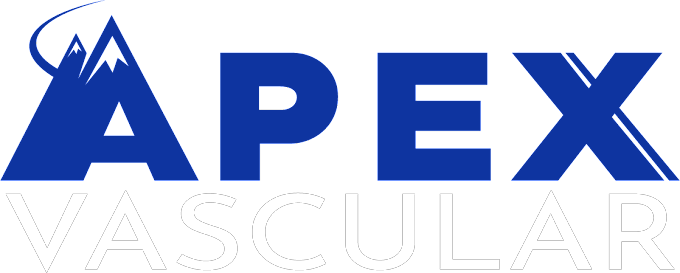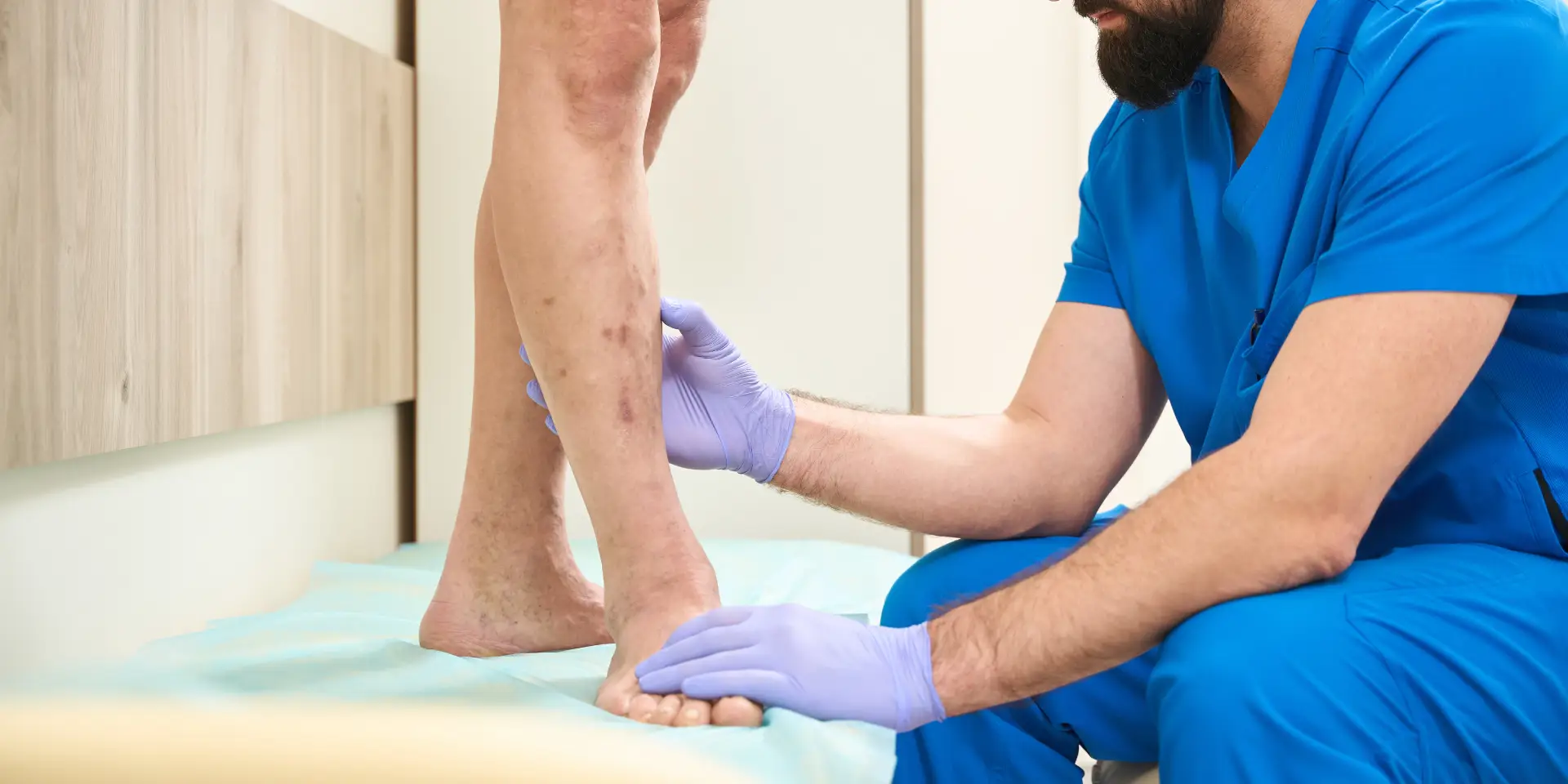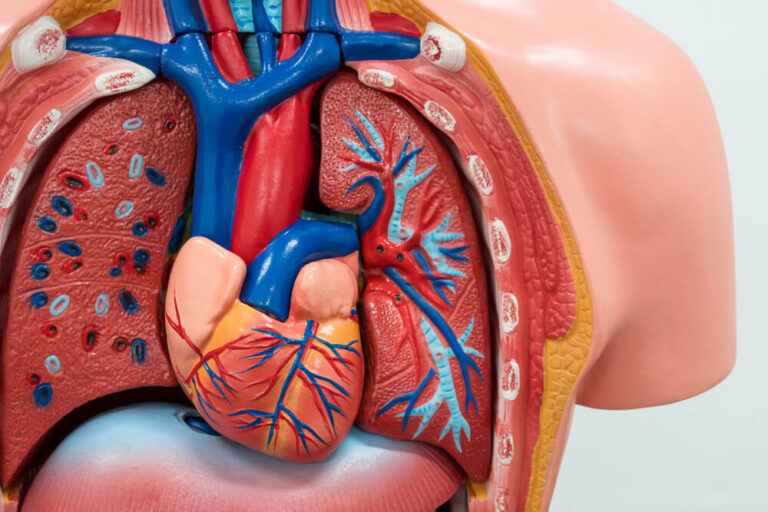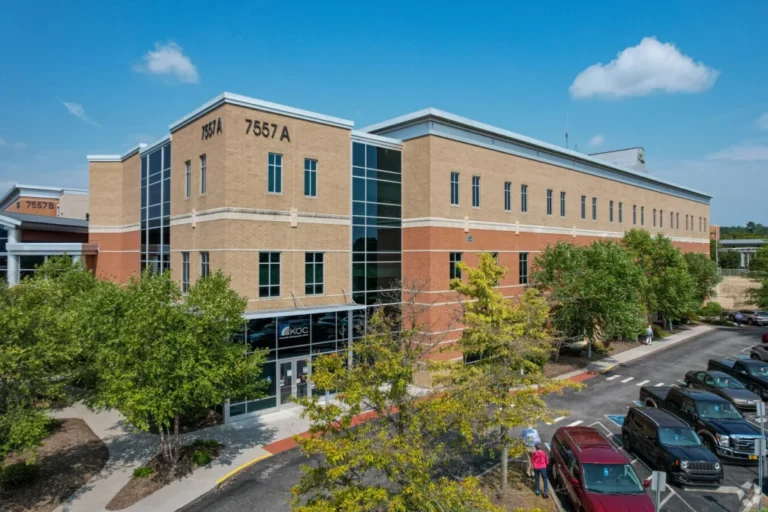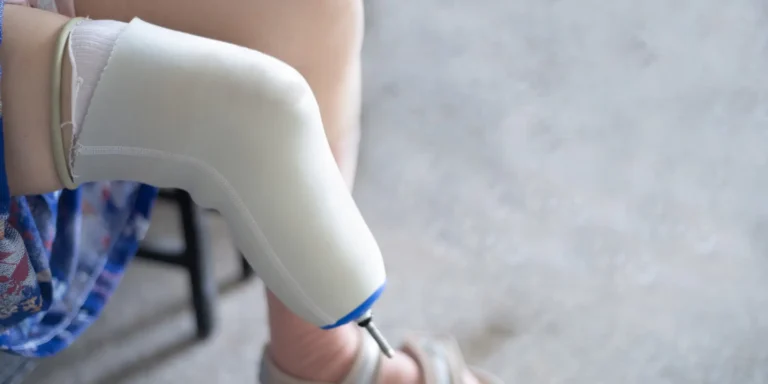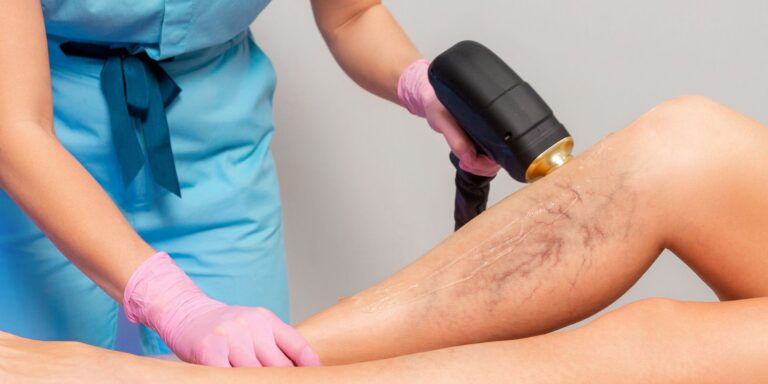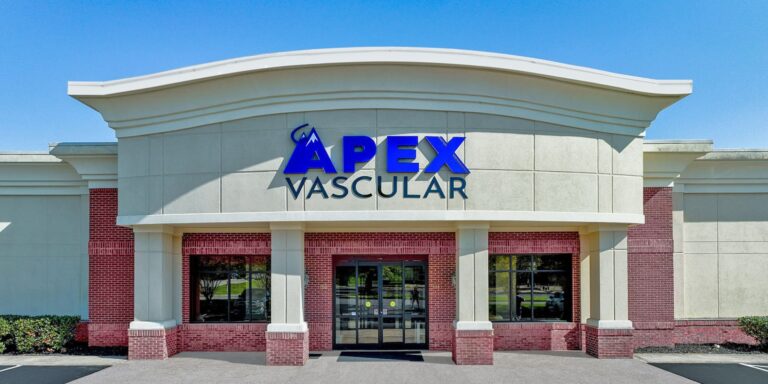Chronic venous insufficiency occurs when veins fail to effectively return blood to the heart, leading to symptoms like swelling and pain in the legs. While it can’t be completely reversed, it can be managed with lifestyle changes. Additionally, minimally invasive procedures can treat affected veins, improving symptoms and enhancing your quality of life.
Managing chronic venous insufficiency involves lifestyle changes like compression therapy, regular exercise, and weight management, along with medical treatments such as sclerotherapy and radiofrequency ablation. Preventive measures and early intervention are crucial. APEX Vascular offers personalized care and interdisciplinary approaches for effective treatment in Knoxville, TN, and beyond.
What is Chronic Venous Insufficiency?
Chronic venous insufficiency (CVI) is a condition where leg veins struggle to efficiently return blood to the heart. It primarily occurs due to malfunctioning valves in the veins, often caused by damage from blood clots, prolonged pressure, or weakening over time.

Common symptoms include leg swelling, pain, heaviness, itching, and skin discoloration. In severe cases, leg ulcers may develop.
Risk factors for CVI include:
- Being over 50
- Being female
- Obesity
- Pregnancy
- Family history of CVI
- Sedentary lifestyle
- Prolonged standing or sitting
- Smoking
Varicose veins and deep vein thrombosis (DVT) are other common risk factors of CVI. Understanding these risk factors can help in the prevention and early intervention.
Can Chronic Venous Insufficiency Be Reversed?
Chronic venous insufficiency cannot be reversed once vein valves are damaged. However, its symptoms can be managed and progression slowed through various interventions. The focus is on improving blood circulation, reducing symptoms, and preventing complications. Lifestyle changes, compression therapy, and medical treatments can effectively control CVI symptoms and enhance your quality of life.
How to Reverse Chronic Venous Insufficiency (Or Come as Close as Possible)
Lifestyle changes are vital for managing CVI, including compression therapy, regular exercise, and leg elevation. Weight management also plays a key role in reducing symptoms. Medical treatments like sclerotherapy and surgical options can alleviate symptoms and improve blood flow, but consulting a vascular surgeon is essential for personalized care.
Lifestyle changes
Lifestyle changes play a crucial role in managing chronic venous insufficiency symptoms and slowing its progression. Compression therapy is a great starting point with compression stockings being essential in managing CVI.
Compression stockings come in different pressure levels and lengths, from knee-high to thigh-high. Proper usage involves wearing them consistently during the day and removing them at night.
Benefits include:
- Reduced swelling
- Improved blood circulation
- Decreased risk of blood clots

Exercise and movement are also important if you want to reverse chronic venous insufficiency. Regular physical activity is vital for improving circulation in CVI patients. Recommended exercises include walking, swimming, and calf muscle exercises. These activities help pump blood from the legs back to the heart, reducing venous pressure and alleviating symptoms.
Leg elevation can also help with CVI symptoms. For example, elevating the legs above heart level for 30 minutes, three to four times a day can significantly improve your symptoms.
Leg elevation is particularly effective when combined with other therapies.
Weight management is another core step for “reversing” chronic venous insufficiency. Excess weight increases pressure on veins, exacerbating symptoms.
Losing weight can:
- Dramatically reduce symptoms
- Prevent new varicose veins
- Improve circulation
- Strengthen vein walls
A balanced diet rich in nutrients and regular exercise are key strategies for healthy weight loss and overall vein health.
Medical treatments
Medical treatments for chronic venous insufficiency focus on managing symptoms and improving blood flow. While CVI cannot be fully reversed, these interventions can significantly alleviate symptoms and slow progression.
Minimally invasive procedures offer effective options for treating CVI, including:
- Sclerotherapy: injecting a chemical into affected veins to cause scarring and closure
- Radiofrequency ablation: uses heat to seal off problematic veins
- Endovenous laser treatment: employs laser energy to close damaged veins
These treatments, often used in combination, can effectively manage CVI symptoms, improve quality of life, and prevent further complications. However, it’s crucial to consult with a vascular surgeon to determine the most appropriate treatment plan based on individual circumstances.
Preventing CVI progression
Preventing CVI progression is crucial for maintaining vein health and overall well-being. Regular check-ups with a vein specialist allow for early detection of issues, enabling timely intervention before symptoms worsen.
Early treatment can:
- Significantly improve your outcomes
- Alleviate discomfort
- Prevent serious complications
Maintaining a healthy lifestyle, including regular exercise, weight management, and avoiding prolonged sitting or standing, plays a vital role in slowing CVI progression. These preventive measures can enhance your quality of life and reduce the need for more invasive treatments later on.
Choose APEX Vascular for Managing Chronic Venous Insufficiency
APEX Vascular offers exceptional care for chronic venous insufficiency. Our dedicated team of experienced vascular surgeons provides personalized, high-quality treatment tailored to your needs. At our practice, we emphasize patient empowerment to ensure that you feel valued throughout your healthcare journey.
Our team at APEX Vascular follows an interdisciplinary approach that combines comprehensive skills with a commitment to elevating patient care standards. We offer a range of endovascular, microvascular, and surgical options, creating individualized treatment plans to help you achieve your health goals.
With a focus on education, respect, and dignity, APEX Vascular stands out as a premier choice for vascular care in Knoxville, TN, and the surrounding region.
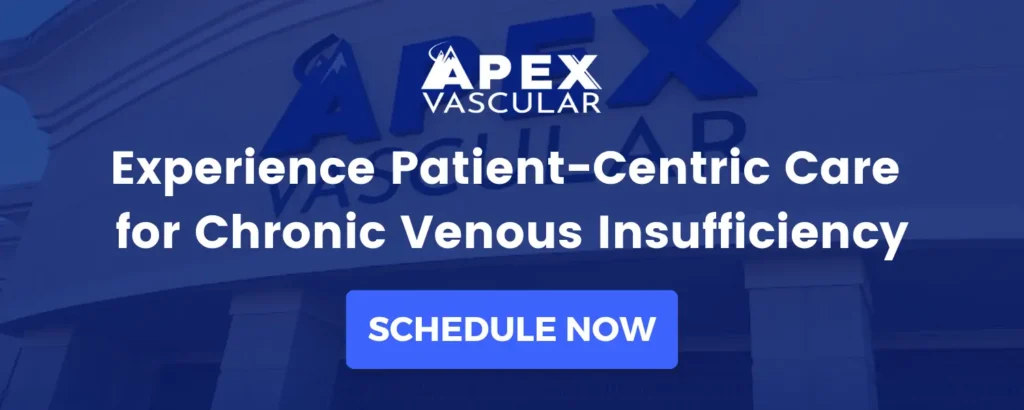
Effective management of chronic venous insufficiency includes lifestyle adjustments like compression therapy, exercise, and weight control, alongside medical treatments such as sclerotherapy and radiofrequency ablation. Preventive strategies and early intervention are vital. APEX Vascular provides personalized, interdisciplinary care for CVI in Knoxville, TN.
APEX Vascular is a vascular surgery and vein center with locations in Knoxville, Lenoir City, Crossville, Decatur, Harrogate, and Sevierville, TN. We are dedicated to delivering personalized, high-quality care that goes beyond medical treatment. Our exceptional vascular staff, boasting extensive experience in vascular surgery, works tirelessly to elevate the standards of patient care and contribute to your overall well-being. Visit us online or call us at 865-562-3232 to request an appointment today!
